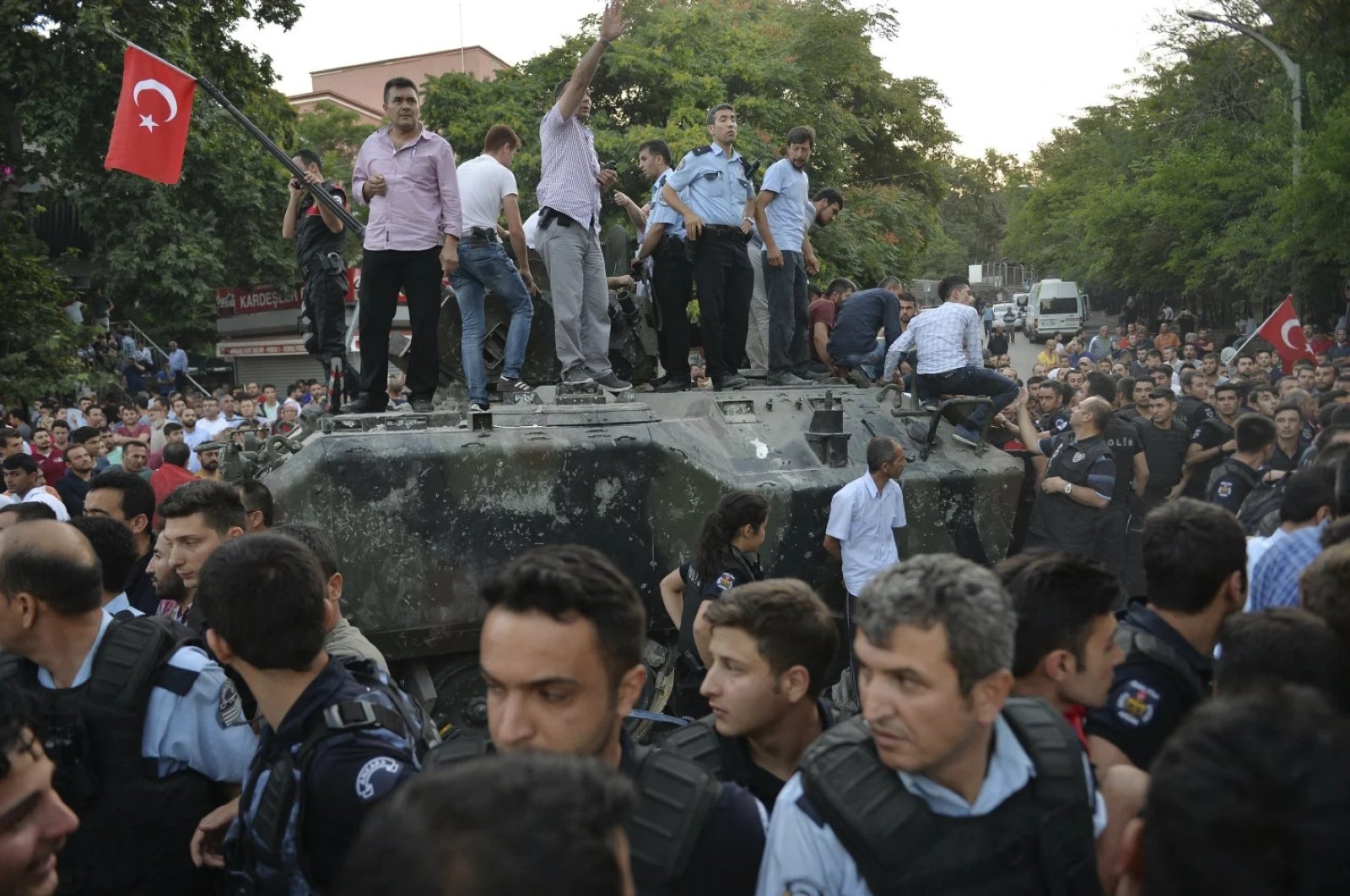
On July 15, 2016, under the leadership of President Erdoğan, the Turkish people took to the streets to successfully defend democracy and thwart a coup attempt
Between 2010 and 2016, Türkiye witnessed a depressing period. A 40-year-old spy network, the Gülenist Terrorist Group (FETÖ), had infiltrated the Turkish government's tiny veins, including public institutions, the judiciary, civil society movements, media, intelligence agencies, law enforcement and the army.
In the 1980s, FETÖ ostensibly opposed military tutelage on behalf of the people dissatisfied with it, influenced by the Green Belt Theory. It feigned resistance against military control and the rigid, secular system in Türkiye that marginalized religiosity and religion.
However, over time, it became clear that this global terrorist organization was a spy network directly serving the CIA or other states such as Germany and the United Kingdom. The Turkish people realized this too late and at a very high cost.
FETÖ, which had gained a lot of power within the Justice and Development Party (AK Party) government, had made significant progress in the army and got organized within the police, financial and other state organizations. But they had a problem of their own. Their future treachery and espionage could one day be a matter of investigation, and their thefts, murders, terrorist activities and illegal activities could one day be interrogated.
To control judiciary
Türkiye implemented various legal reforms, leading to a constitutional referendum on Sept. 12, 2010. During this period, Fethullah Gülen, the leader of the terrorist organization, urged that even the deceased should rise to vote. At the time, we did not fully comprehend the significance of this enthusiasm.
However, during the Sept. 12 referendum, it became evident that the terror group aimed to seize control of the judicial system directly by manipulating the government, essentially gaining influence through deceptive means. As a result of the referendum, FETÖ took command of the Council of Judges and Prosecutors (HSYK), effectively assuming leadership of the entire judicial apparatus.
FETÖ was taking over media organizations, transferring monetary resources abroad by robbing all state institutions that it surrounded like an octopus and catching and imprisoning people who realized what they had done.
On the one hand, it sought to eliminate non-Gülenist members of the Turkish army through several operations named "Espionage" or "Ergenekon." On the other hand, it aimed to exert power on politics and the government, keeping them under constant siege.
Dec. 17 and 25
After reaching a particular stage, the government realized that this treacherous organization had become an immovable burden for the state. Paradoxically, when the functioning of the terrorist group was noticed, instead of the government that was expected to act against the terrorists, the terrorist group staged operations against the government on Dec. 17 and 25, 2013, instrumenting its spies, hence the judges and prosecutors, in the judiciary. It was a big disaster for a country that the justice mechanism was in the hands of a terrorist organization.
In due course, the AK Party gave a signal to the terrorist group with the closure of their private prep schools. Shutting down such prep schools, the majority of which were held by the terrorist group, was the flare that started the war between the government and FETÖ.
A week after Dec. 17, the terrorist organization made another move. On Dec. 25, the taking action to arrest certain AK Party members indicated that the war between the state and the terrorist organization had escalated. However, the terrorist group tried to present this war as if it were against President Recep Tayyip Erdoğan, not the state. They launched an extraordinary global campaign to defame, discredit and demonize then-Prime Minister Erdoğan as much as possible.
July 15 military coup attempt
When FETÖ realized that its demise was approaching, it mobilized its elements within the army and attempted a direct military coup on July 15, 2016.
And even though this spy network, organized in the bureaucracy, military, economic circles and the media, turned millions of people into "mankurts" dependent on them, their organization lacked opinion leaders and a leading intellect. In other words, FETÖ never gained organizational wisdom because a spy cannot develop such intelligence. A person who constantly hides, masks themselves and always pretends to be someone else lacks even the intellect of a donkey, let alone administrative know-how.
When the coup attempt started, Parliament was bombed, 40 special operations officers lost their lives in the security directorates in Istanbul and Ankara, and almost all institutions in the country were under tank attacks.
Even before President Erdoğan's call, people took to the streets to fight against the coup. But with Erdoğan's call, the people were mobilized in the streets. More than half of the Turkish people were outside that night and fought and sent the coup plotters back to where they came from. From July 15 to July 16, by the first light of the morning, the coup had been crushed and the traitors had been arrested and put in jail.
There has been a coup attempt in Bolivia in recent weeks. Bolivia's current and former heads of state called on the people, and thanks to the successful experience of Türkiye, the Bolivian people also took to the streets, stood against the coup plotters and repelled the coup. There is a learned lesson against coups globally. When people take to the streets for democracy, for their future, for their existence, the tanks of the coup plotters are not very effective. This great struggle of the Turkish people under the leadership of President Erdoğan has played an influential role in preventing coups for the future of democracy, freedom and humanity.
